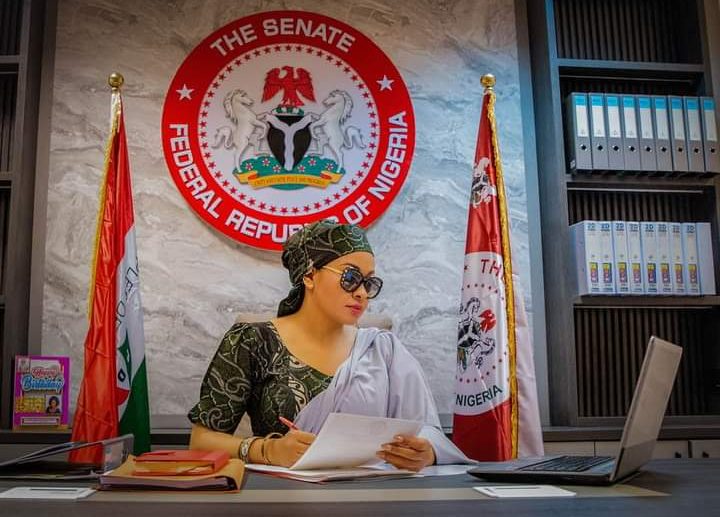
This comes after a year the Infrastructure Concession Regulatory Commission hinted that the country would start local production of uniforms for its military and paramilitary personnel from January 2023.
Speaking at the interactive session on the 2024 budget between the Senate Committee on Defence and Defence Headquarters, Akpoti-Uduaghan proposed the use of local industries to manufacture uniforms for military officials in the country.
“I have been going through your budget. Maybe I’ve missed the part that talked about the provision of uniforms for the officers; Navy, Airforce, and Army. My question is, where do you acquire the uniforms? Are they locally produced or imported? Kindly draw my attention to the budgetary provision for that, how much is being budgeted and whether they are manufactured hundred per cent in Nigeria.
“I am speaking as the Chairman of the Local Content Committee. It’s my greatest desire to see that our local industries are being utilised in the manufacturing of boots and uniforms,” the Kogi lawmaker noted.
She urged the Federal Government to situate the manufacturing industries in Kogi Central, adding that Ebiras are well known for their tailoring skills, which in turn will help keep jobs local and also generate revenue for the country in the long run.
The lawmaker also recommended situating a barrack facility in Kogi Central to improve the security situation in the region and its environs.
Responding, the Minister of Defence, Abubakar Badaru, said the budgetary provision for uniforms is contained in the budget of the armed forces.
He added that there is an ongoing plan to revamp the Defence Industries Corporation of Nigeria, an indigenous industry that will employ about 1,500 people to produce military uniforms and boots.
“Already, there are local companies in Nigeria that are doing the production of boots, helmets, and some of the protective wear. Last month, the Permanent Secretary and I visited one of the companies, and they are doing well, I can share the address and I will encourage you to also visit the colonies to see the level of work they are doing there,” he added.
President Bola Tinubu recently assented to the DICON Bill, 2023. The new Act empowers the Defence Industries Corporation of Nigeria to operate, maintain, and control subsidiaries and ordnance factories to manufacture, store, and dispose of ordnance and ancillary stores and materials.
The DICON Act also established the Defence Industry Technology, Research, and Development Institute to create an elaborate scientific and research-based technological foundation for Nigeria’s defence industry through the leveraging of combined, multi-disciplinary research from multiple military research institutes for an application that leads to commercialisation and the development of new military technology and capacity in Nigeria.
In September, the President approved a $1bn deal with India to modernise DICON’s facilities and increase its local production of defence equipment to 40% (as against the 100% local production proposed by Senator Natasha) by 2027.





